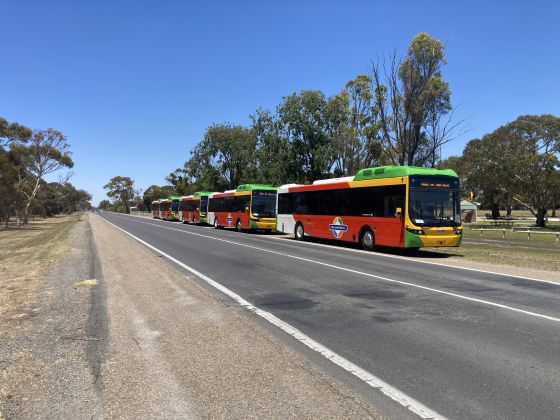All aboard for lower emissions
Monday 31 March 2025

The South Australian Government has ordered sixty brand new 100 per cent full battery electric buses, as well as appointing two global engineering advisory firms to develop detailed planning towards creating a zero emission passenger transport network.
The new bus fleet’s bodies are being built by Australian bus manufacturer Volgren, with infrastructure to charge the buses being installed at the Morphettville depot.
The 60 buses are on order from supplier Scania to be delivered progressively throughout the second half of 2025 and early 2026. There is currently just one full battery electric bus operating on the network, after a successful trial.
As well as being better for the environment, full battery electric buses offer more comfort to passengers, reducing noise and fuel-based pollution.
And a fully decarbonised public transport network is a step closer with the South Australian Government appointing two global engineering professional services companies, Mott MacDonald and WSP, to assist with developing detailed business cases to plan towards a transition to zero emission operations across the passenger rail and bus networks.
Mott MacDonald, a global engineering, management and development consultancy, and WSP in Australia, one of the world’s leading professional services firms, have been selected based on their technical expertise and their experience in helping governments globally transition their public transport networks towards zero emissions operation.
The State Government is committed to an emissions reduction target of at least 60 percent of 2005 levels by 2030 and net zero by 2050.
Transportation is the largest single source of emissions in South Australia, with the operation of public transport vehicles being a major contributor to emissions generated by the South Australian Government.
The work to be undertaken by Mott MacDonald and WSP will consolidate the large body of planning and feasibility analysis already completed by the State Government into a detailed business case for achieving zero emissions operation across Adelaide’s passenger rail and bus networks.
It also follows a series of high-level meetings held by Infrastructure and Transport Minister Tom Koutsantonis with some of the world’s biggest rail companies at the world’s largest trade fair for transport technology, InnoTrans 2024, in Berlin last year, with discussions focussed on the Government’s priority to progress the rollout of battery electric trains more broadly in South Australia.
The Adelaide Metro bus fleet currently consists of just over 1000 vehicles powered by a mix of diesel, hybrid, battery electric, and natural gas powertrains, with two hydrogen buses currently on trial. As of September 2022, procurement of new diesel-only buses has ceased, and all new vehicles are now either diesel-electric hybrids or battery electric.
The Adelaide Metro railway network is already partially decarbonised. The Gawler and Seaford Lines, including the Flinders spur line, have been electrified. However, the Belair and Outer Harbor line, including the Grange and Port Dock spurs, are operated by hybrid-diesel railcars.
The business cases are expected to be completed in early 2026.